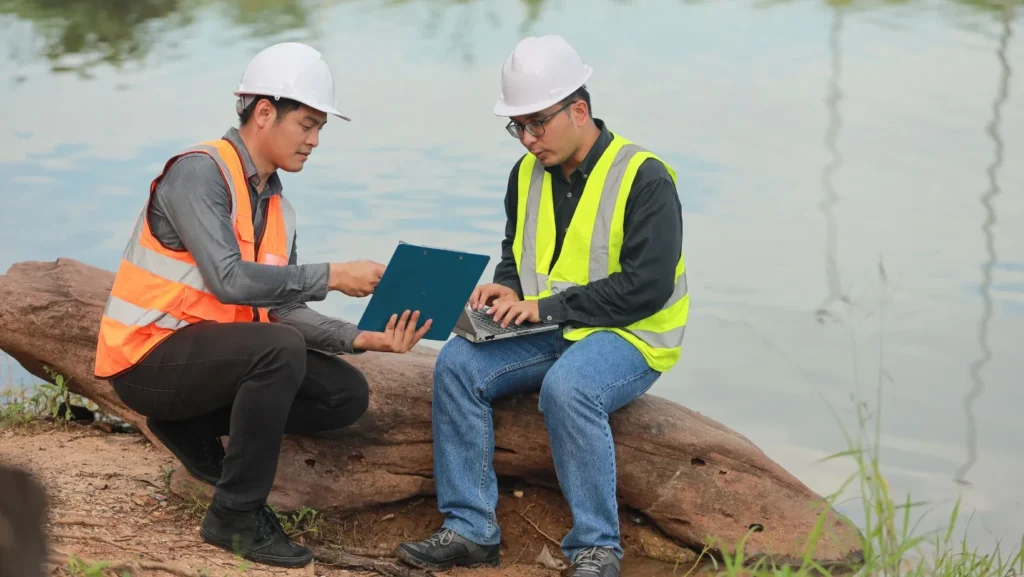Upon successful completion of the ICTQual Level 6 Diploma in Environmental Engineering, graduates can pursue various career and academic opportunities to further their expertise and professional development. The skills gained in this diploma program open doors to a wide range of progression pathways:
1. Career Pathways
Graduates of this course are well-equipped to enter the workforce in a variety of roles, including:
- Environmental Engineer: Design, develop, and implement systems that address environmental problems, such as waste management, pollution control, and water treatment.
- Renewable Energy Specialist: Work with energy production systems focused on sustainability, including wind, solar, and bioenergy solutions.
- Water Resources Engineer: Manage water supply and wastewater treatment systems, ensuring sustainable water use in urban and industrial settings.
- Air Quality Specialist: Monitor and manage air pollution, designing solutions to improve air quality in various regions.
- Sustainability Consultant: Advise businesses and organizations on how to reduce their environmental impact through sustainable practices.
- Environmental Compliance Officer: Ensure that organizations comply with environmental laws and regulations, conducting audits and overseeing environmental standards.
- Waste Management Engineer: Design and optimize waste management systems for both municipal and industrial waste, focusing on recycling and waste minimization.
2. Professional Certifications and Accreditations
Graduates may choose to pursue industry certifications and memberships to enhance their professional standing:
- Chartered Environmentalist (CEnv): Graduates may work towards becoming a Chartered Environmentalist, a prestigious professional title offered by environmental bodies such as the Society for the Environment.
- LEED Certification: For those interested in sustainable building design, obtaining a Leadership in Energy and Environmental Design (LEED) certification can enhance career opportunities in green building design and energy efficiency.
- Project Management Certifications: Obtaining certifications like PRINCE2 or PMP can help graduates manage large-scale environmental projects more effectively.
3. Entrepreneurship
Graduates may choose to start their own environmental engineering consulting firm or green technology business. With expertise in areas such as waste management, renewable energy, and sustainable development, graduates are well-positioned to create solutions that address environmental challenges while driving business success.
4. Research and Development
For those interested in advancing knowledge in the environmental engineering field, graduates can pursue roles in research and development (R&D). This could involve working with government agencies, private companies, or academic institutions to develop new technologies and approaches to tackling environmental issues like climate change, pollution, and resource depletion.
5. International Opportunities
As global demand for sustainability and environmental solutions grows, graduates can explore international career opportunities. Many countries are investing in green technologies, renewable energy projects, and environmental protection measures, offering roles in international organizations, NGOs, or multinational corporations focused on environmental sustainability.
The ICTQual Level 6 Diploma in Environmental Engineering provides a solid foundation for students to either advance their studies or enter the professional workforce, contributing to the growing need for sustainable engineering solutions across various industries and sectors.

